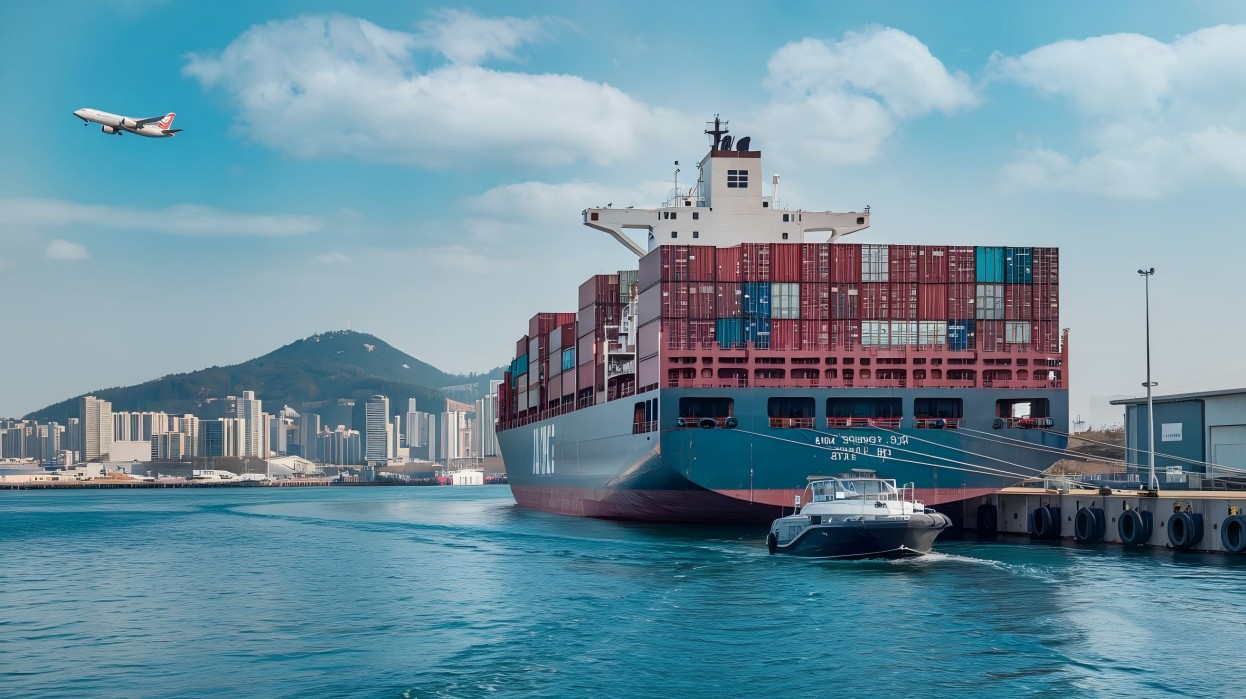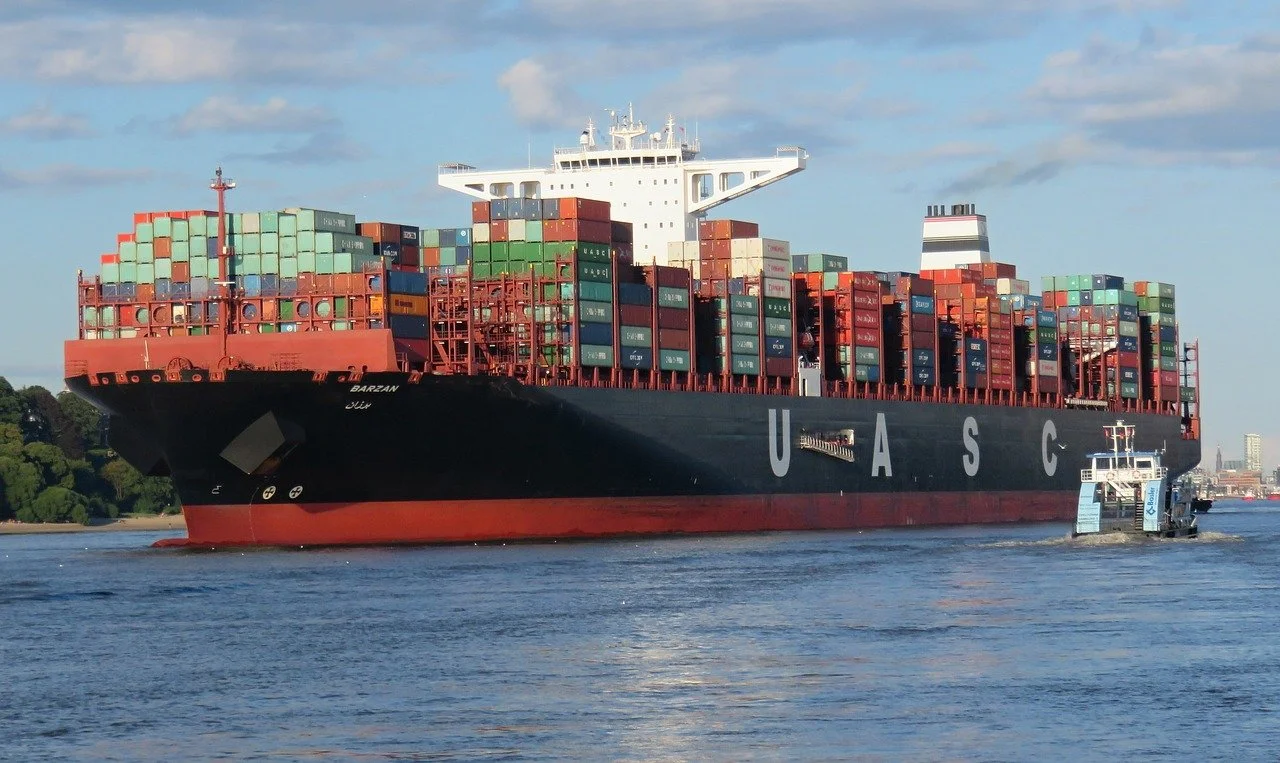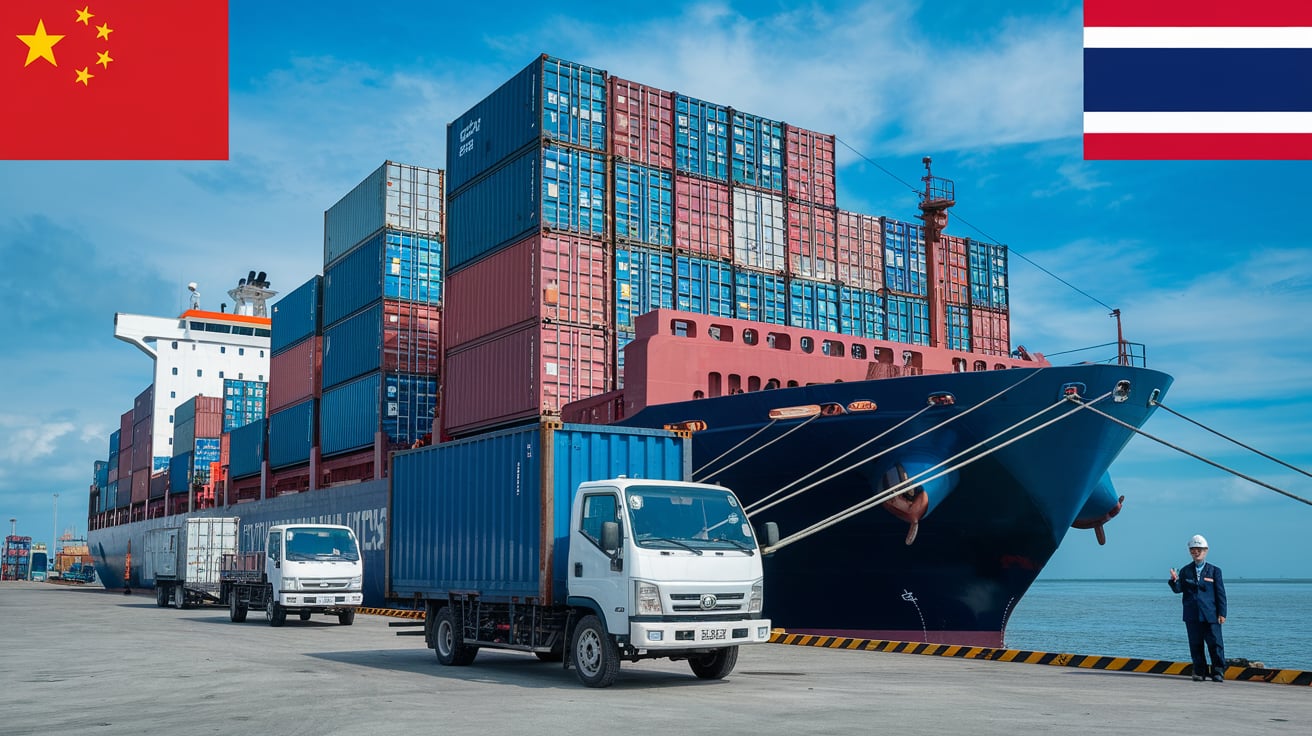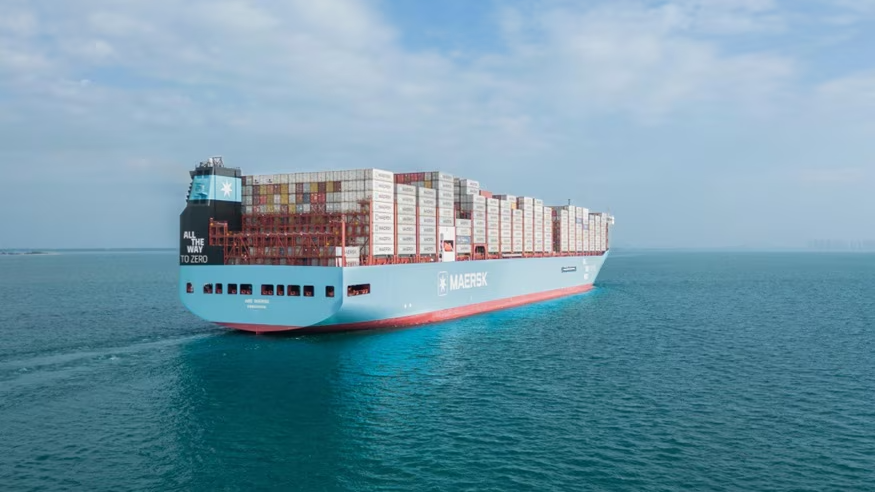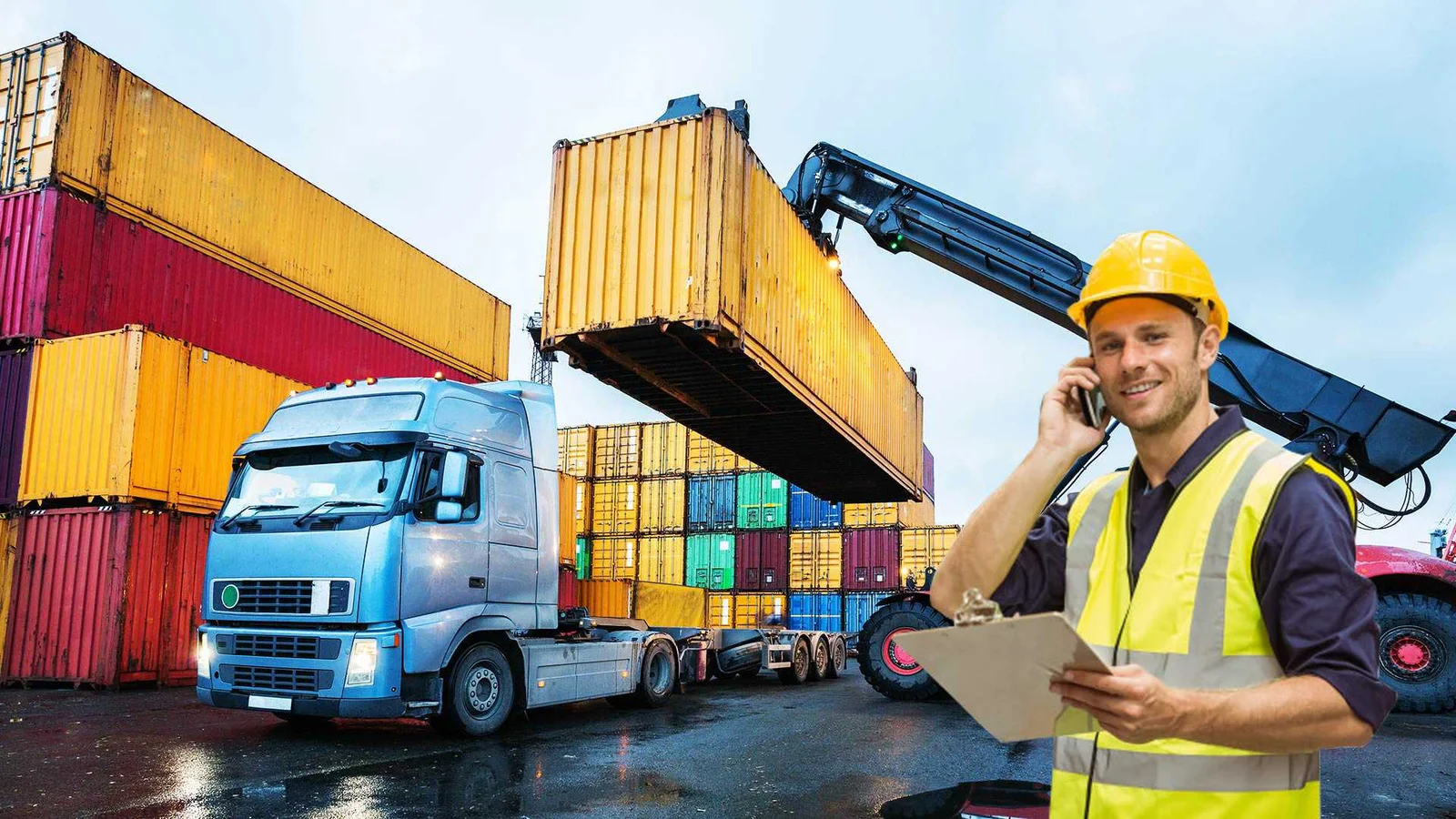Trade between China and Egypt has been growing steadily over the past few years, driven by increasing economic cooperation and the strategic importance of both countries in their respective regions. In 2021, the bilateral trade volume between China and Egypt reached $19.97 billion, reflecting a robust economic relationship. Due to the increasing trade volume, the logistics needs between these two nations have become more complex and crucial.In this blog, we will explore the concept of door-to-door shipping from China to Egypt. We will discuss what door-to-door shipping entails, its key components, and the numerous advantages it offers. Additionally, we will delve into the specifics of DDU (Delivered Duty Unpaid) and DDP (Delivered Duty Paid) services to provide a comprehensive understanding of this shipping method.
Related Article: Shipping From China To EGYPT
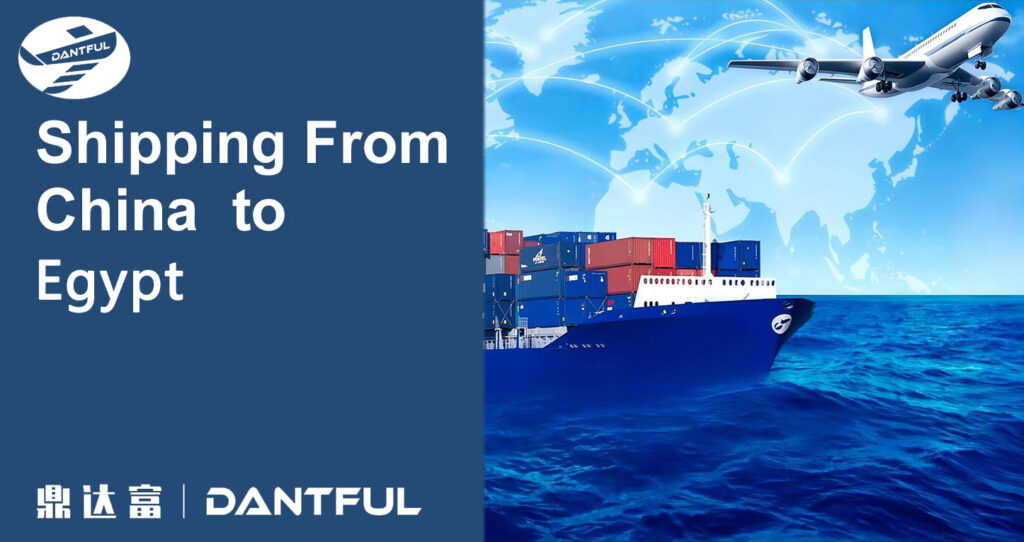
What is Door-to-Door Shipping?
Door-to-door shipping is a comprehensive logistics service where the shipping provider manages the entire shipment process from the sender’s location to the receiver’s doorstep. This means that all aspects of the logistics chain—including pickup, transportation, customs clearance, and final delivery—are handled by a single logistics provider.
Key Components of Door-to-Door Shipping
- Pickup Service: The logistics provider collects the goods from the sender’s location.
- Transportation: This includes both domestic (within China) and international shipping segments. Depending on the nature of the goods and the urgency of the shipment, various modes such as Ocean Freight or Air Freight may be used.
- Customs Clearance: Handling of all necessary documentation and procedures to ensure the goods clear customs smoothly in both the origin and destination countries.
- Final Delivery: Ensuring the goods are delivered intact and on time to the recipient’s specified location in Egypt.
DDU and DDP
- DDU (Delivered Duty Unpaid): In this arrangement, the seller is responsible for delivering the goods to the destination, but the buyer is responsible for paying the import duties and taxes upon arrival. The logistics provider will facilitate the entire process but the cost of local duties and taxes is borne by the buyer.
- DDP (Delivered Duty Paid): Here, the seller takes full responsibility for all costs related to shipping, including import duties and taxes. This means the buyer receives the goods without having to deal with customs and tax formalities.
Advantages of Door-to-Door Shipping
Convenience and Time-Saving
One of the primary benefits of door-to-door shipping is the convenience it offers. With a single logistics provider handling the entire process, businesses can save significant amounts of time and effort in coordinating various stages of shipping. This is particularly beneficial for companies engaged in frequent or large-scale trade between China and Egypt.
Reduced Handling and Potential for Damage
By minimizing the number of hands that handle the goods during transit, door-to-door shipping reduces the risk of damage. Each stage of the logistics process is managed by experienced professionals who ensure that the goods are handled with care, thereby reducing the potential for damage.
Simplified Customs Clearance Process
Customs clearance can be a complex and time-consuming part of international shipping. Door-to-door shipping services simplify this aspect by managing all necessary documentation and procedures, ensuring smooth and timely clearance through customs. This reduces the likelihood of delays and additional costs associated with customs issues.
Single Point of Contact for the Entire Shipment
Having a single point of contact for the entire shipping process is a significant advantage. Businesses can rely on their logistics provider to manage and coordinate all aspects of the shipment, from pickup to final delivery. This not only streamlines communication but also ensures that any issues or concerns are addressed promptly by a dedicated professional.
By choosing a reliable logistics partner like Dantful International Logistics, businesses can enjoy all these benefits while ensuring their shipments are managed with the highest level of professionalism and efficiency.
Shipping Methods from China to Egypt
Air Freight: Speed and Considerations
Air freight is the fastest shipping method for transporting goods from China to Egypt. This method is ideal for time-sensitive shipments, such as high-value electronics or perishable goods. However, it is important to note that air freight can be more expensive compared to other shipping methods. When considering air freight, businesses should evaluate the urgency of their shipment, the weight and volume of the goods, and the associated costs.
Sea Freight: Cost-Effectiveness for Larger Shipments
Ocean Freight is a cost-effective solution, particularly for larger and heavier shipments. There are two primary types of sea freight services:
- FCL (Full Container Load): This option is suitable for businesses that have enough cargo to fill an entire container. FCL offers more control and security over the shipment, as the container is exclusively used by one customer.
- LCL (Less than Container Load): LCL is ideal for smaller shipments that do not require a full container. Multiple customers share the same container, making it a more economical option for shipping smaller quantities of goods.
Sea freight is generally slower than air freight, but it offers significant cost savings, especially for bulk shipments.
Express Courier Services: For Urgent or Smaller Packages
Express courier services are the best choice for urgent or smaller packages that need to be delivered quickly. Companies like DHL, FedEx, and UPS provide reliable express courier services that ensure rapid transit times and door-to-door delivery. While express courier services can be more expensive, they provide peace of mind with their track-and-trace capabilities, secure handling, and guaranteed delivery times.
Shipping From China to Middle East Countries:
- Shipping from China to Saudi Arabia
- Shipping from China to UAE
- Shipping from china to KUWAIT
- Shipping From China To EGYPT
- Shipping from China to Bahrain
- Shipping From China To Jordan
- Shipping From China To Israel
- Shipping from China to Qatar
- Shipping From China To IRAQ
- Shipping from China to Iran
Steps in the Door-to-Door Shipping Process
- Pickup from the Supplier in China: The logistics provider arranges for the collection of goods from the supplier’s location in China. This initial step includes preparing the necessary documentation and packaging to ensure the safe transport of goods.
- Export Customs Clearance in China: The logistics provider handles the customs clearance process in China, ensuring all export regulations and duties are complied with. This step includes the submission of required documents and payment of any export fees.
- International Transportation (Air or Sea): Depending on the chosen method—air freight or sea freight—the goods are transported from China to Egypt. This phase involves careful planning and management to ensure timely and secure transit.
- Import Customs Clearance in Egypt: Upon arrival in Egypt, the logistics provider manages the import customs clearance process. This involves preparing and submitting the necessary documents, paying import duties and taxes, and ensuring compliance with local regulations.
- Last-Mile Delivery to the Final Destination: The final step in the door-to-door shipping process is the delivery of goods to the recipient’s specified location in Egypt. The logistics provider arranges for the transportation of goods from the port or airport to the final delivery address, ensuring the goods arrive intact and on time.
By partnering with a reliable logistics provider like Dantful International Logistics, businesses can ensure a smooth and efficient door-to-door shipping process from China to Egypt.
Customs and Documentation
Required Documents for Export from China
When exporting goods from China, several key documents are required to ensure smooth customs clearance. These documents include:
- Commercial Invoice: A detailed invoice that lists the goods being shipped, their value, and the terms of sale.
- Packing List: A document that provides detailed information about the contents of the shipment, including weight, dimensions, and packaging details.
- Bill of Lading (BOL): A contract between the shipper and the carrier that outlines the terms and conditions of the transportation.
- Export License: A permit issued by the Chinese government allowing the export of certain goods.
- Certificate of Origin: A document that certifies the country in which the goods were manufactured.
Import Regulations and Documentation for Egypt
Importing goods into Egypt also requires a set of specific documents and adherence to local regulations. These documents typically include:
- Import Declaration Form: A form submitted to Egyptian customs, detailing the nature, quantity, and value of the goods.
- Commercial Invoice: The same invoice used during export, now used for import purposes.
- Bill of Lading (BOL): This document is also used at the destination to verify the terms of the shipment.
- Certificate of Origin: Required to verify the origin of the goods, often needed for calculating import duties.
- Import Permit: Certain goods may require specific permits or licenses to be imported into Egypt.
Tips for Smooth Customs Clearance
- Prepare Accurate Documentation: Ensure all documents are filled out accurately and completely to avoid delays.
- Understand Local Regulations: Familiarize yourself with both Chinese and Egyptian import/export regulations to ensure compliance.
- Work with Experienced Professionals: Utilize the services of a logistics provider like Dantful International Logistics, which has expertise in handling customs clearance efficiently.
- Timely Submission: Submit all required documents well in advance to avoid last-minute issues.
Choosing a Reliable Shipping Partner
Factors to Consider When Selecting a Freight Forwarder
Choosing the right freight forwarder is crucial for a smooth shipping process. Key factors to consider include:
- Experience and Expertise: Look for a forwarder with extensive experience in handling shipments between China and Egypt.
- Range of Services: Ensure the forwarder offers comprehensive services, including customs clearance, insurance, and real-time tracking.
- Reputation and Reliability: Check reviews and references to gauge the reliability and reputation of the forwarder.
Importance of Experience in China-Egypt Trade Routes
An experienced logistics provider with a deep understanding of China-Egypt trade routes can navigate the complexities of international shipping more effectively. They are more likely to be familiar with local regulations, potential pitfalls, and the best practices for ensuring timely and secure deliveries.
Services to Look For
- Tracking: Real-time tracking of shipments to monitor the progress and ensure transparency.
- Insurance: Comprehensive insurance services to protect against loss or damage during transit.
- Customs Clearance: Efficient handling of all customs clearance procedures to avoid delays and additional costs.
Dantful International Logistics Services:
- Dantful Ocean Freight Services
- Air Freight From China
- Amazon FBA Freight Forwarding
- WAREHOUSE Services
- One-Stop Customs Clearance Solution
- Cargo Insurance Services in China
- DDP Shipping Services By Dantful Logistics
- Out of Gauge Cargo Transportation Shipping Services
Cost Factors in Door-to-Door Shipping
Breakdown of Typical Costs Involved
The costs associated with door-to-door shipping can be broken down into several components:
- Freight Charges: Costs for the transportation of goods, whether by air freight or sea freight.
- Customs Duties and Taxes: Fees imposed by the importing country, such as duties, taxes, and tariffs.
- Handling Fees: Charges for the loading and unloading of goods at various stages of the shipping process.
- Insurance: The cost of insuring the shipment against potential risks.
- Documentation Fees: Costs associated with preparing and processing the necessary shipping documents.
Factors Affecting Pricing
Several factors can influence the pricing of door-to-door shipping:
- Weight and Volume: Heavier and larger shipments generally incur higher costs.
- Shipping Method: Air freight is typically more expensive than sea freight.
- Destination: The distance and accessibility of the final delivery location can affect costs.
- Seasonality: Shipping rates can vary based on peak and off-peak seasons.
Tips for Cost Optimization
- Consolidate Shipments: Combine smaller shipments into a larger one to take advantage of bulk shipping rates.
- Choose the Right Shipping Method: Balance the urgency and cost of shipping by selecting the most suitable method for your needs.
- Work with a Reliable Partner: Partner with a logistics provider like Dantful International Logistics that offers competitive rates and comprehensive services.
- Plan Ahead: Avoid last-minute shipments, which can incur higher costs due to expedited services.
By understanding these aspects and choosing a reliable shipping partner, businesses can optimize their shipping processes and costs effectively.
Timeframes and Transit Times
Estimated Durations for Different Shipping Methods
When shipping goods from China to Egypt, the transit times can vary significantly depending on the chosen shipping method:
- Air Freight: Typically, air freight is the fastest shipping option, with an estimated transit time of 3 to 7 days. This makes it ideal for urgent or high-value shipments that require quick delivery.
- Sea Freight: For sea freight, the transit time is generally longer, ranging from 20 to 35 days, depending on the specific route and shipping conditions. Sea freight is more cost-effective for larger shipments but requires more planning due to the extended transit time.
- Express Courier Services: Express courier services like DHL, FedEx, and UPS can deliver small packages within 3 to 5 days. These services are more expensive but offer the fastest and most reliable transit times for smaller shipments.
Factors That Can Affect Delivery Times
Several factors can influence the transit times for shipments from China to Egypt:
- Customs Clearance: Delays in customs clearance, either in China or Egypt, can extend the overall delivery time. Efficient handling of customs clearance procedures is crucial to avoid such delays.
- Weather Conditions: Adverse weather conditions can impact both air and sea freight, causing delays in transit.
- Port Congestion: Busy ports can lead to longer waiting times for loading and unloading, affecting sea freight schedules.
- Peak Seasons: Higher shipping volumes during peak seasons, such as major holidays and trade events, can result in longer transit times due to increased demand.
Challenges and How to Overcome Them
Common Issues in China-Egypt Shipping
Shipping goods from China to Egypt can present several challenges:
- Customs Delays: Misunderstandings or errors in customs documentation can result in significant delays and additional costs.
- Logistical Coordination: Coordinating multiple stages of the shipping process, including pickup, transportation, and delivery, can be complex, especially for door-to-door shipping.
- Language Barriers: Communication issues due to language differences can lead to misunderstandings and mistakes in shipping instructions.
Strategies to Mitigate Risks and Delays
- Accurate Documentation: Ensure all shipping documents are accurately completed and submitted on time to facilitate smooth customs clearance.
- Choose a Reliable Partner: Partner with an experienced logistics provider like Dantful International Logistics, which has expertise in managing the entire shipping process efficiently.
- Plan Ahead: Schedule shipments well in advance to account for potential delays and avoid last-minute issues.
- Use Real-Time Tracking: Utilize tracking services provided by your logistics partner to monitor the progress of your shipment and address any issues promptly.
- Insurance: Protect your shipment against potential risks by opting for comprehensive insurance services.
FAQs
Q1: What is door-to-door shipping?
A1: Door-to-door shipping is a comprehensive logistics service where the provider manages the entire shipment process from the sender’s location to the receiver’s doorstep, including pickup, transportation, customs clearance, and final delivery.
Q2: How long does it take to ship from China to Egypt?
A2: The transit time depends on the shipping method. Air freight takes approximately 3 to 7 days, while sea freight can take between 20 to 35 days. Express courier services typically deliver within 3 to 5 days.
Q3: What documents are required for customs clearance?
A3: Required documents for customs clearance include the commercial invoice, packing list, bill of lading, export/import licenses, and a certificate of origin.
Q4: What factors affect shipping costs?
A4: Shipping costs are influenced by the weight and volume of the goods, the chosen shipping method, destination, and any additional services such as insurance and expedited delivery.
Q5: How can I ensure smooth customs clearance?
A5: To ensure smooth customs clearance, prepare accurate documentation, understand local regulations, work with experienced professionals, and submit all required documents in a timely manner.
References
- International Trade Administration – Comprehensive resource on China’s customs regulations, detailing the necessary documentation and procedures for exporting goods.
- World Bank – Provides data and statistics on international shipping and logistics performance, offering valuable insights into shipping trends and transit times.
- Egyptian Customs Authority – Official website of the Egyptian Customs Authority, providing detailed information on import regulations, required documentation, and customs procedures.
- International Chamber of Commerce – Information on Incoterms, including DDU and DDP, which are crucial for understanding the terms of international shipping agreements.

Young Chiu is a seasoned logistics expert with over 15 years of experience in international freight forwarding and supply chain management. As CEO of Dantful International Logistics, Young is dedicated to providing valuable insights and practical advice to businesses navigating the complexities of global shipping.
By leveraging these authoritative sources, businesses can gain a deeper understanding of the complexities and requirements involved in door-to-door shipping from China to Egypt, ensuring a more efficient and secure shipping process.











